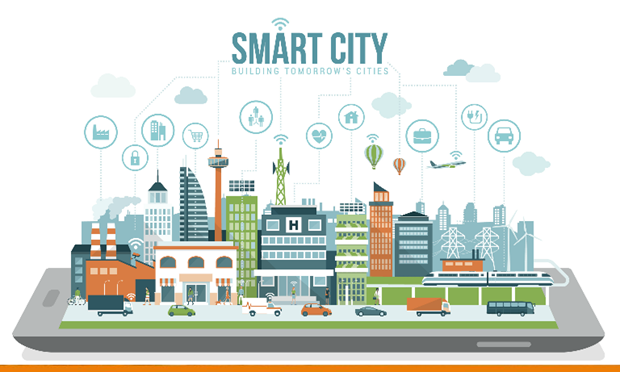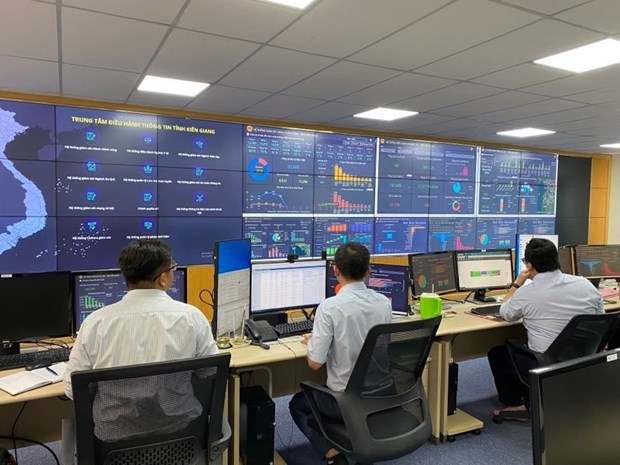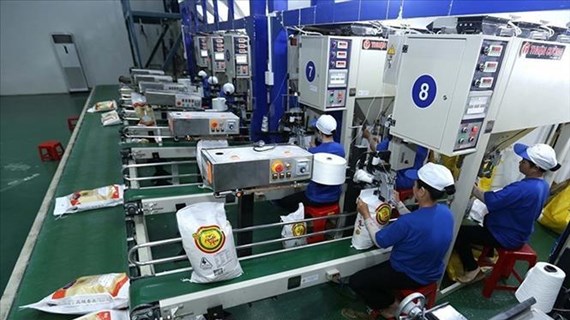Vietnam gleans international expertise in smart urban development
It is urgent to fully tap the 4th Industrial Revolution to build smart cities in Vietnam as well as ensure connectivity among them, said insiders.
 Illustrative image (Photo: reti.vn)
Illustrative image (Photo: reti.vn)Many foreign cities have undergone these transformations and hold a wealth of experience for Vietnam to learn from.
Experts said Vietnam has recorded remarkable achievements in developing urban areas in recent years, however unsustainable development has caused consequences.
Urbanisation - an objective necessity
According to a representative of the Ministry of Construction, after 35 years of its Doi moi (renewal) process, especially in the last 10 years, the work of urban planning, construction, management, and development in Vietnam has achieved many important results.
By the end of 2020, Vietnam was home to 862 urban areas of all kinds. The rate of urbanisation determined by areas increased from 30.5% in 2010 to nearly 40% in 2020. Urban space has been expanded, while the socio-economic infrastructure has been invested in an increasingly synchronous and efficient manner.
However, the process of urbanization; and urban planning, construction, management, and development still have shown limitations. The urbanisation rate is lower than the target set in the Socio-economic Development Strategy in the 2011- 2020 period, and is still far from the average rate of the region and the world.
The quality of urbanisation also remains low. This causes a waste of land, experts said, adding that the structure and quality of urban infrastructure has not met requirements for the development of population and economy in urban areas. Urbanization has also yet to adapt to climate change and respond to large-scale epidemic risks.
Notably, environmental pollution in major urban areas tends to increase with complicated developments, causing negative impacts. Poor people and migrant workers in urban areas gain limited access to public services and social welfare, while the management and administration remain weak.
Experts said that smart urbanisation is considered an important motivation for rapid and sustainable socio-economic development in the coming time. This is also the guiding view stated in Resolution 06-NQ-TW issued by the Party Central Committee in early 2022.
So far, as many as 48 out of 63 provinces and cities nationwide have been building plans to develop smart urban areas. However, they still face difficulties in determine how are smart city models suitable to specific characteristics of each locality.
International experience for speeding up urbanisation
Dr. Architect Luu Duc Minh, Deputy Director of the Academy of Managers for Construction & Cities (AMC) of the Ministry of Construction, emphasised that in Vietnam, smart city development is one of the important motivation to realise the goal of turning Vietnam into a developed and high-income nation by 2045.
 Illustrative image (Photo: MTS)
Illustrative image (Photo: MTS)However, he said that Vietnam needs to learn from experience of countries that have succeeded in developing smart cities, especially models from Asian countries sharing similarities with Vietnam, on its way to realise the goal.
Citing experience from the Republic of Korea (RoK), Minh said that the country has concentrated on the urban development since 1995.
He underlined the necessity to apply new technologies in developing smart cities, and fine-tuning the synchronous database information platform in the direction of digital government and e-city, which has been developed in the Republic of Korea over 20 years ago.
According to Minh, Vietnam should focus on building a foundation of urban database, information and communication; promoting digital transformation for sectors and fields such as natural resources and environment and land management; urban planning management.
Meanwhile, Dr. Baik Nam-cheol from the Smart Cities Research Centre at the Korea Institute of Civil Engineering and Building Technology, said the urbanisation rate in Vietnam is currently at 37%, and is forecast to reach 52-58% in 2040.
 A smart operation centre developed by VNPT in Kien Giang province (Photo: VietnamPlus)
A smart operation centre developed by VNPT in Kien Giang province (Photo: VietnamPlus)Vietnam can learn from policies of the RoK in promoting digital transformation, carbon neutrality, and commercialisation of the means of transport.
Vietnam should step up the formation of synchronous and modern housing and urban infrastructure systems capable of adapting to climate change. The systems should promote the development of digital infrastructure in urban areas, smart management models, and exploiting urban technical infrastructure systems, the Korean expert said./.












